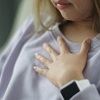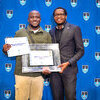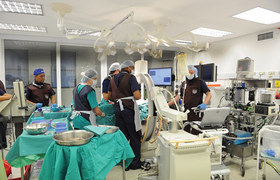A word from the dean
01 December 2014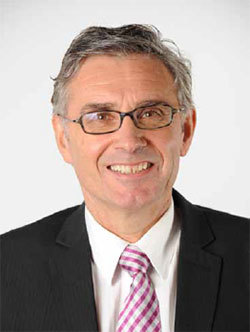
As dean of the Faculty of Health Sciences since 2013, I feel privileged to be associated with UCT, and leading the top-ranking health sciences faculty on the continent. The reputation of this faculty is rooted in its excellence over the past 102 years – attributable to the calibre and standing of staff, students and our alumni. I have personally experienced this, having lived and worked as a clinician overseas, in the United Kingdom and United States, for more than 20 years.
This year we ranked 48th in the Times Higher Education World University Rankings for clinical, pre-clinical and health. This position is up from the previous two years (53 in 2013, and 50 in 2012) – demonstrating consistency in our ratings, and that we are placed in the company of internationally acclaimed universities. The drivers of these ratings relate largely to our reputation in education and research (specifically, number of citations and publications.
Our research enterprise has grown tremendously over the past decade, to a projected research income exceeding R600 million in 2014. Last year we also attracted more direct grants from the National Institutes of Health than any other university outside the USA. Our publication output increased similarly, by more than 50% from five years ago.
The faculty's 11 departments have numerous research groups spread across them, many promoting interdisciplinary work – a practice particularly emphasised in our Institute of Infectious Disease and Molecular medicine (IDM). The IDM, a cross-faculty research grouping, recently celebrated 10 years of exceptional growth with a symposium on driving research for human health in Africa. It has grown into UCT's largest research entity, attracting the most income for the faculty. The majority of this research income is sourced from foreign funders, with significant funding coming from non-profit organisations.
The faculty's commitment to developing human research capacity is illustrated by our more than 2 000 postgraduates (roughly a quarter of UCT's total), of which 360 are PhD candidates. In addition, we had 119 postdoctoral fellows during 2013.
We are also increasing our under-graduate student numbers to address the need for more doctors in the country, by enrolling 20 more students in first-year MBChB (now at 220), with the aim of increasing it to 300 by 2016. This has already strained our infrastructure and resources, and we are strategising to address this in a more sustainable way. Our approximately 2 000 undergraduates across the health sciences disciplines are indeed among the bestin the country. We are spoilt for choice – this year, we had over 5 000 applications for 220 places in first-year MBChB alone. Our students learn practical skills in community-based settings at 87 public health facilities across the province; and the calibre of graduate can be seen in the impact they make. A recent example is our Surgical Society – the driving force behind the establishment of an international undergraduate surgical society focused on improving the quality of undergraduate surgical training in Africa and beyond. Other examples include two recent graduates who were awarded prestigious Rhodes Scholarships to Oxford University last year, and another of our graduates who received a Mandela Rhodes Scholarship for next year.
I am very proud of our teaching staff, who are among the best and most dedicated – some have been honoured with UCT Distinguished Teacher Awards. The professional development of our staff as teachers is paramount, and next year will see the establishment of a new Department of Health Sciences Education to promote the development of medical education as a distinct and growing academic discipline.
This supplement represents merely a snapshot of our faculty's wide range of activities.
Enjoy the read.
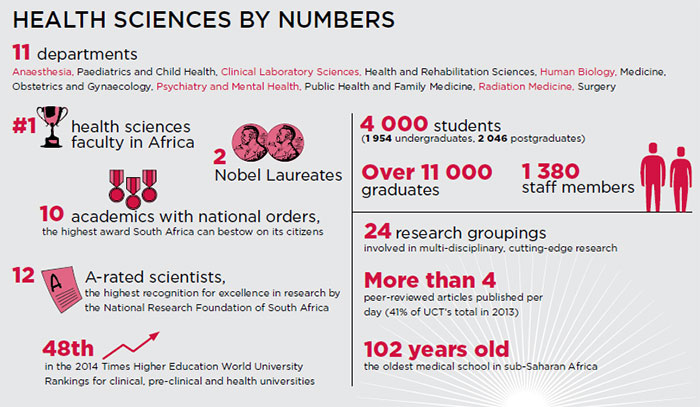
 This work is licensed under a Creative Commons Attribution-NoDerivatives 4.0 International License.
This work is licensed under a Creative Commons Attribution-NoDerivatives 4.0 International License.
Please view the republishing articles page for more information.


